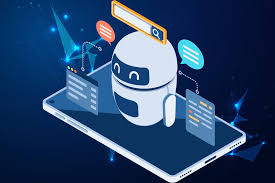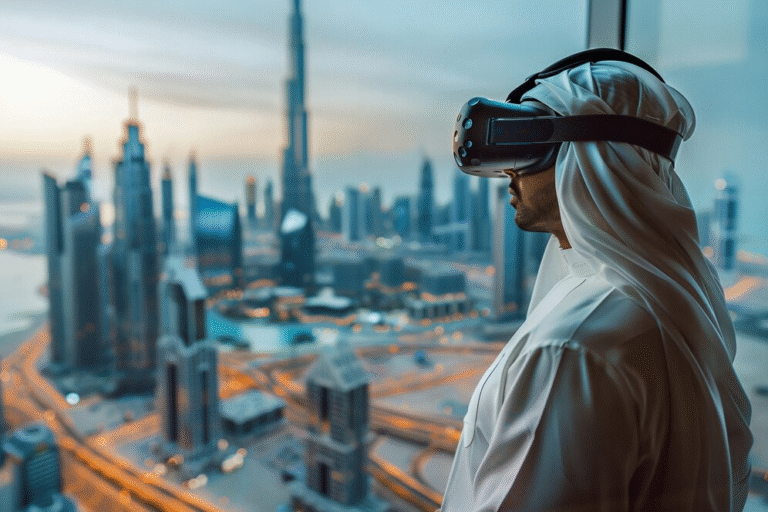
Technology has become the heartbeat of modern civilization. From communication and business to entertainment and healthcare, every aspect of life has been transformed by digital innovation. The 21st century has witnessed an explosion of technological growth — smartphones in every pocket, AI assistants in every home, and cloud systems connecting people across continents. But beyond convenience, technology has become a symbol of human progress, creativity, and connection.
In this article, we’ll explore how technology has evolved, the industries it continues to reshape, and how it’s redefining the way people live, work, and play in our rapidly changing world.
The Rise of Digital Transformation
Digital transformation refers to how organizations and individuals use technology to improve efficiency and create new opportunities. Over the past decade, industries that were once purely physical — such as education, retail, and banking — have shifted online. Cloud computing, automation, and data analytics are now the driving forces behind this transformation.
For example, schools and universities now use digital platforms to provide online classes, making education accessible to students worldwide. Similarly, remote work tools like Zoom and Slack have changed the professional landscape, enabling collaboration from anywhere.
Digital transformation isn’t just about adopting new tools — it’s about adapting mindsets. Companies that embrace change are the ones thriving, while those that resist are being left behind. The key lies in leveraging technology not as a replacement for human skill but as an extension of it.
Artificial Intelligence: The Brain Behind Modern Tech
Artificial Intelligence (AI) is arguably the most revolutionary technology of our time. It powers everything from recommendation systems on Netflix to self-driving cars and smart assistants like Alexa or Siri. AI can process massive amounts of data faster than humans ever could, allowing businesses to make smarter, data-driven decisions.
In healthcare, AI helps diagnose diseases with incredible accuracy. In marketing, it predicts consumer behavior to create personalized experiences. Even in creative fields, AI is now generating music, writing articles, and designing visuals.
However, the rise of AI also raises ethical questions. How much control should machines have? What happens when algorithms make decisions that affect human lives? As technology advances, striking a balance between innovation and responsibility becomes crucial.
The Internet of Things: Connecting the World Around Us
The Internet of Things (IoT) refers to everyday objects connected to the internet, sharing data and improving convenience. Smart homes are the perfect example — thermostats, lights, and security systems that can all be controlled with a smartphone.
IoT extends beyond homes. Smart cities use sensors to manage traffic flow, reduce pollution, and enhance public safety. In agriculture, IoT devices help farmers monitor soil conditions and water usage, increasing productivity while conserving resources.
This interconnected network of devices is changing how we interact with the physical world. However, it also comes with challenges, especially around privacy and data security. As everything becomes connected, protecting sensitive information becomes more important than ever.
Technology and Entertainment: A Digital Revolution
Few industries have been transformed by technology as much as entertainment. Streaming platforms like Netflix, Spotify, and YouTube have replaced traditional TV and radio, giving people on-demand access to content anytime, anywhere. Social media apps have turned ordinary users into global influencers, reshaping how fame and creativity work.
Gaming, too, has evolved from simple 2D experiences to hyper-realistic virtual worlds. Millions of players now participate in global tournaments, some earning professional-level incomes from esports. Virtual Reality (VR) and Augmented Reality (AR) are further blurring the lines between the physical and digital worlds, offering immersive experiences once thought impossible.
Even the gambling and casino industry has gone digital. Thanks to technological innovation, players no longer need to visit physical casinos to enjoy their favorite games. Platforms like online casino offer users a secure and engaging experience from the comfort of their homes. With advanced graphics, real-time gaming, and fair play systems powered by technology, online gaming platforms showcase how entertainment and tech can seamlessly merge. These platforms also use encryption and AI-driven security to protect user data, ensuring that the thrill of gaming comes with peace of mind.
The Role of Technology in Business
Businesses have embraced technology to reach new heights of efficiency and productivity. Automation tools handle repetitive tasks, freeing employees to focus on creative and strategic work. Data analytics helps companies understand customer behavior, improve services, and predict market trends.
E-commerce has exploded, with online platforms connecting buyers and sellers across the globe. Businesses now use digital marketing, influencer collaborations, and targeted advertising to reach audiences more effectively. Meanwhile, financial technologies (FinTech) like mobile wallets, cryptocurrencies, and online banking have changed how people manage money.
Technology isn’t just helping businesses grow — it’s leveling the playing field. Even small startups can compete with large corporations by using affordable tech tools, social media marketing, and remote work systems. The power of technology lies in its ability to democratize opportunity.
The Future: Innovation Meets Responsibility
As technology continues to evolve, so do the challenges that come with it. Issues like data privacy, cybersecurity, and misinformation have become global concerns. With AI and automation taking over more roles, the future of work is also changing. This shift calls for new skills, adaptability, and continuous learning.
Sustainability is another growing focus. Tech companies are investing in eco-friendly innovations, from renewable energy solutions to biodegradable materials and energy-efficient devices. The goal is to create technology that not only serves people but also protects the planet.
In the coming years, breakthroughs in quantum computing, biotechnology, and space exploration will redefine what’s possible. But with great power comes great responsibility — and the real test will be how humanity chooses to use these advancements for good.
Final Thoughts
Technology is more than just a collection of tools — it’s a reflection of human ambition and creativity. It connects, empowers, and entertains us, opening doors to possibilities that once existed only in imagination. From AI and IoT to the rise of online casino gaming and virtual entertainment, every advancement brings us closer to a smarter, more connected world.
The key is to use technology wisely — not just to make life easier, but to make it better. As innovation continues to accelerate, our challenge is to ensure that technology remains a force for progress, inclusivity, and positive change for generations to come.






